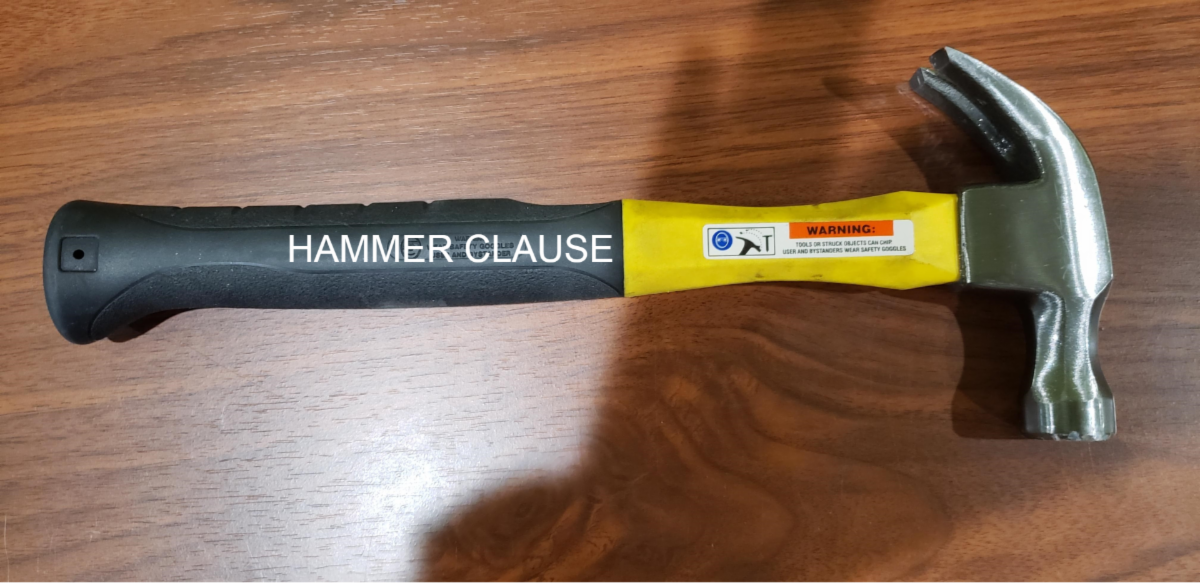
You will not find the Hammer Clause anywhere in your policy. The Hammer Clause is slang for forcing a settlement in the Defense, Indemnification, and Cooperation section of your policy.
As with other professional errors and omissions policies, the attorney malpractice insurance policies commonly gives the insured the right to tell the insurer whether to settle the claim or not. As a professional you may not want to settle because you feel that you did nothing wrong, or it may damage your reputation. Also, settling a claim when you did nothing wrong will end up on your loss history and could cost you more for insurance premiums in the future.
The insurer looks at the claim from a dollars and cents perspective in terms of how much it will cost to resolve the claim. Given the facts, claims counsel estimates chances of winning, the cost of defending, and the ultimate indemnity payment. If a case goes to trial, the defense costs alone can exceed the settlement claim cost. There is no guaranteed at trial. Ultimately, as far as the malpractice insurer is concerned, with a choice between a $500,000 defense bill with no indemnity payment versus a $25,000 settlement, guess which option the insurer picks? Sorry to say for insurers normally it not a question of who is right and who is wrong, but how much it costs.
If a case is not settled before trial, be prepared for depositions, producing documents, and a large amount of your personal time assisting in the claim’s defense.
Given these facts, most professionals want claims settled quickly. But say you don’t want to go along with the insurer’s claims department or the malpractice attorney recommendation. It is your right according to your policy as a professional to refuse to settle. Now what happens?
The Hammer Clause:
The attorney malpractice insurance policy Insuring Agreements or Defense & Settlement sections state that even though the insurer will not settle a claim without the insured’s consent, the insurer’s exposure to the loss is limited to the amount that would have been paid if the insured had taken the insurer’s recommendation. In other words, if an insured does not accept the insurer’s recommendation, then the insured is liable for any additional costs over what the case could have been settled for. The insurer can put the ‘Hammer’ to you if you do not settle when they recommend.
This is a sample of what is commonly referred to as a “Hammer Clause” from an attorney malpractice liability policy form:
SETTLEMENT
The Company shall have the right to negotiate a settlement or compromise of a claim as it deems appropriate but shall not commit to settlement of a claim without the written consent of the Named Insured. If the Named Insured refuses to consent to a settlement or compromise recommended by the Company and acceptable to the claimant, then the Company’s Limits of Liability under this Policy shall be reduced to the amount for which the claim could have been compromised or settled, plus all claim
Click Here to Obtain an Attorney Malpractice Insurance Quote

Lee Norcross, MBA, CPCU
(616) 940-1101 Ext. 7080